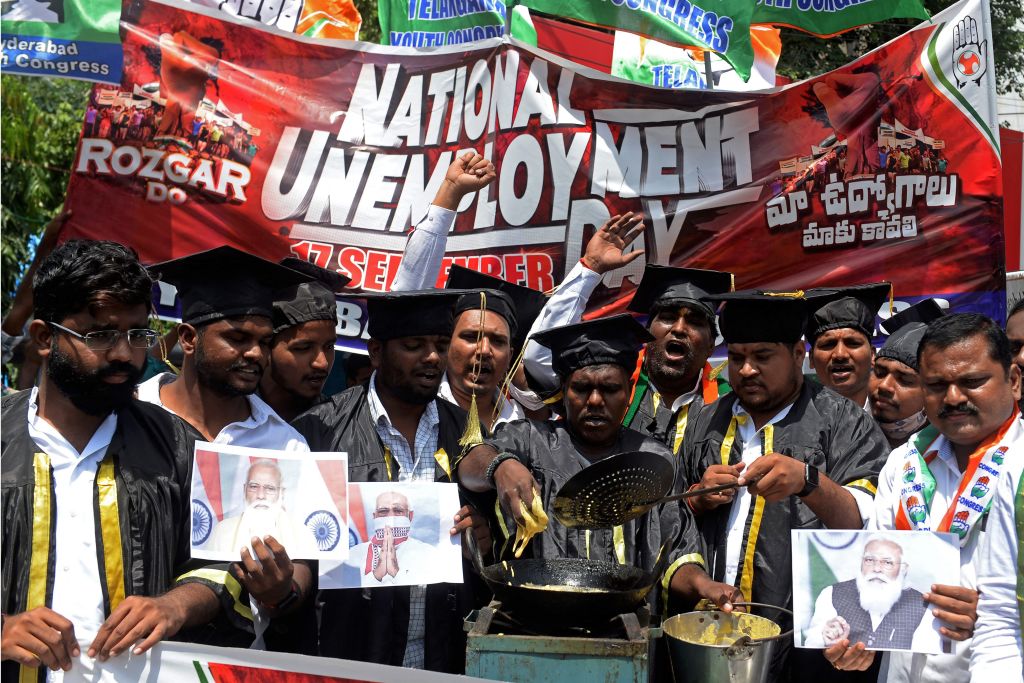- Thursday, April 25, 2024

By: Shubham Ghosh
INDIAN finance minister Nirmala Sitharaman announced in her annual budget unveiled on Tuesday (1) that the government aims to generate six million jobs over the next five years.
However, questions are being raised in various quarters over the promise as critics have reminded that prime minister Narendra Modi had pledged to create millions of jobs after taking over the reins of power in 2014.
The BBC wrote in a recent report that the latest promise made by Sitharaman won’t be easy since India’s unemployment rate has gone past most emerging economies in recent years.
ALSO READ: India’s budget 2022-23: At a glance
It cited the analyses of Craig Jeffrey and Jane Dyson, two Australia-based higher education teachers and writers who are experts on the nature of joblessness in India.
India’s jobless youth running out of patience fast: ‘Government playing with our lives’
The report started by saying that in the mid-2000s, a group of students at a college in Meerut in the northern Indian state of Uttar Pradesh jokingly called themselves a “nowhere generation”.
The group failed to grab a government job despite trying hard over the years and said they were stuck somewhere between their rural roots and dream of urban mobility. They said “timepass” (an Indian English term which means spending time without a purpose in life) was what their lives had become because of unemployment.
The scenario has become somewhat similar in the last two weeks as the scale of India’s employment crisis has become worrisome and the country’s “unemployed youth” is back into discussion.
The curse of unemployment has only grown bigger since the mid-2000s and the narrative of Asia benefiting from a “demographic dividend” has come under scrutiny. Among those challenging the projection are none other than those millions of poorly employed youngsters who are forced to do such jobs (or have no job) despite having a high qualification.
Recently, several of such youth were seen venting their anger out after failing to find their names shortlisted in a recruitment examination held by the country’s railways, a mammoth employer. They did so by blocking railway tracks and vandalising trains and even setting the empty compartments of a stationary train in fire.
Jeffrey and Dyson have over the last 25 years carried out research in Uttar Pradesh, India’s most populous state, and its northern neighbour Uttarakhand, on the experiences and actions of unemployed youth aged between 18 and 35.
The research included living and working with unemployed youngsters for many years in Meerut district of Uttar Pradesh and Chamoli district of Uttarakhand.
It was found that such youth face serious social setbacks. Since they lack money, they fail to meet familial expectations, face problems in managing their marriages and even have little sense of respect.
If they do not have a permanent job, the men fail to get an identity as breadwinners and also feel bitter about the time and effort they spent behind education and job searches.
Since having meaningful employment is connected to a worthy sense of citizenship, many young people spent their formative years with dreams of serving the nation through government services, the lack of job leaves them cynical and detached, who see themselves as a lot “doing nothing” or engaged in “timepass”.
That leaves a generation belonging to nowhere, it seems.
Can Sitharaman’s mega announcement give this generation a purpose?
![]()